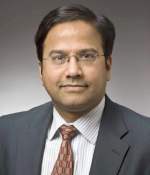|
|
| Help | |
| You are here: Rediff Home » India » News » Report |
|
 Sunder Ramaswamy | ||
| |||||||||||||||||||||||
|
| |||||||||||||||||||||||
An expert in international and development economics has been appointed president of the prestigious California-based Monterey Institute of International Studies.
As president of the institute, Sunder Ramaswamy will also have under his purview the Graduate School of International Policy Studies, the Graduate School of Translation and Interpretation, the Fisher Graduate School of International Business and the Graduate School of Language and Educational Linguistics, and the renowned James Martin Center for Nonproliferation Studies and Center for East Asian Studies.
Currently, Dr Ramaswamy, 44, is dean for faculty development and research and Frederick C Dirks Professor of International Economics at Middlebury College and also the project director of the Middlebury-Monterey Integration Task Force, a committee that fosters collaboration across all areas of both institutions after MIIS became a Middlebury affiliate in 2005. He will assume his new duties January 1, after Clara Yu, the current president, retires.
Ronald D Liebowitz, Middlebury College president, said the Monterey board of trustees unanimously recommended Dr Ramaswamy to the Middlebury board for approval.
"Sunder Ramaswamy is the perfect successor to Clara at this crucial juncture in the relationship between our two institutions. His scholarly background and credentials, his administrative experience at both the graduate and undergraduate levels, and his knowledge of both institutions gives us great confidence that Sunder will build on Clara's successes," Liebowitz said.
 |
Ramaswamy, who has a PhD in economics from Purdue University and an MA in economics from the Delhi School of Economics, joined the Middlebury faculty in 1990 as an assistant professor of economics and was promoted to associate professor in 1996, and to full professor in 2001. In 2002, he was named the Frederick C Dirks Professor of International Economics. His principal areas of expertise are development economics, international economics, and issues in applied microeconomics.
In response to a question, he said that Dr Raja C Chelliah, then chairman of the Madras School of Economics, approached him in 2003, asking him to take over as the director of the Madras School of Economics.
Dr Ramaswamy took leave of absence from Middlebury, and returned in 2005. He continues to maintain a dual appointment as 'visiting professor of economics' at MSE, and is involved with collaborative research projects with faculty colleagues there.
He expressed confidence in Monterey's future and said he was honoured to be selected as president. "I look forward to building on the great momentum that Clara Yu has established there," he said.
"If you have looked at the Monterey Institute's strengths, over the decades its mission has been to prepare students who are truly multilingual, multicultural and capable of performing in a global setting whether as entrepreneurs, managers, peace corps volunteers, policy makers, translators and interpreters," he said.
"Recent books by Thomas Friedman or Fareed Zakaria have documented extensively the kind of seismic shifts in the global economy, polity and society, which presents opportunities and challenges and should be of critical interest to educators."
"Our students are living through an experience in which time and consciousness take on new dimensions, and demands that our students display 'adaptive versatility'. The key for me at the Monterey Institute is to do everything we can to make the Institute financially sound, remain academically excellent, innovative and nimble, and last but not least, professionally relevant," he said. "It is important to make 'things better', but it is equally important to make 'them matter'."
Author of many books and articles that have appeared in scholarly journals, Dr Ramaswamy has been involved with the World Bank and various United Nations agency projects on economic reforms in India. He has also been associated with projects on agricultural development in sub-Saharan Africa, sponsored by the United States Agency for International Development and other agencies.
His teaching and other academic work have been supported by grants from the Davis Foundation, the Ford Foundation and the Kellogg Foundation. When asked about the current global food grain crisis, which the Bush administration has blamed on countries like India and China, Ramaswamy said there are a number of reasons for the crisis. These include an increase in demand for food grains, both for consumption by human beings and as feed given to animals to meet the increased demand for meat, thanks to growing affluence.
"The diversion of land for biofuels to ostensibly meet the demand for alternative fuel vehicles in the West is a compounding factor. Agricultural policies in the affluent countries that pay farmers to not produce also contribute," he said, going on to list other factors, like the increase in the prices of petroleum and petroleum-based products, extended drought, and variability in rainfall in many parts of the world.
A number of these 'perfect storm' factors combine to pull up the prices of food grains globally, he said, adding, "It would be naive to suggest that it is only demand in countries like China and India that is to blame."
His most recent projects include being part of a multi-country, multi-disciplinary effort to harmonise nutrient-based food and dietary standards, with a particular emphasis on what this implies from a trade and development' perspective.
The project has been conducted under the auspices of the United Nations University with guidance from the Food and Agriculture Organisation and World Health Organisation. He is also involved with a project detailing the options and mechanisms for a 'Betterment Levy' along the Information Technology corridor coming up near Chennai.
|
|
| © 2008 Rediff.com India Limited. All Rights Reserved. Disclaimer | Feedback |